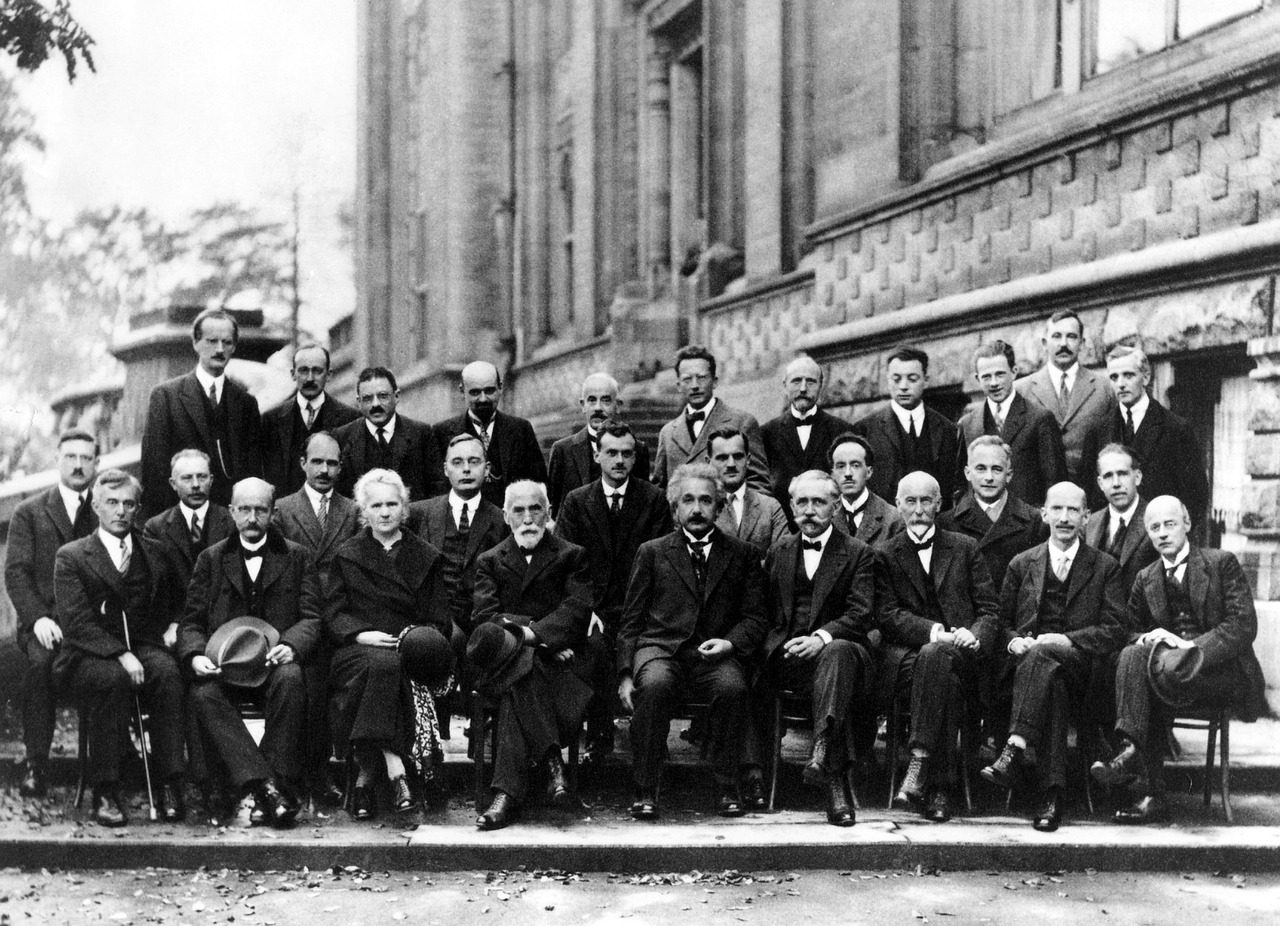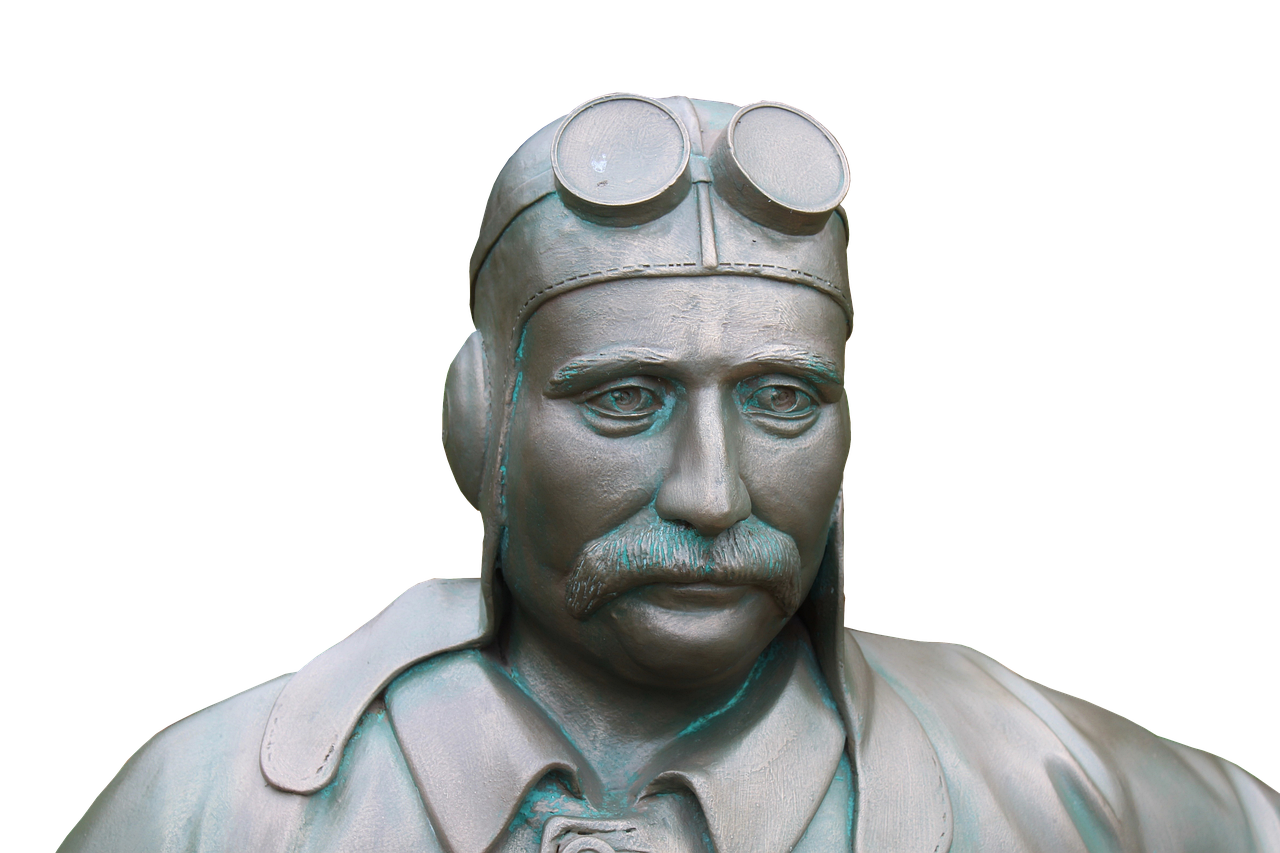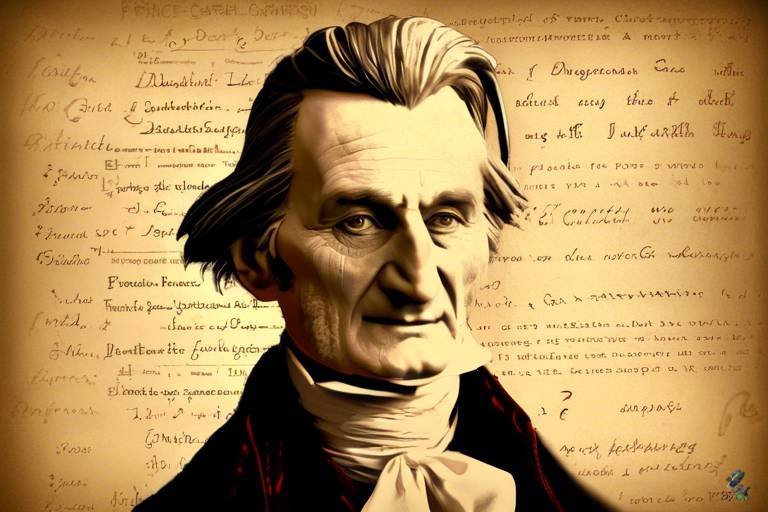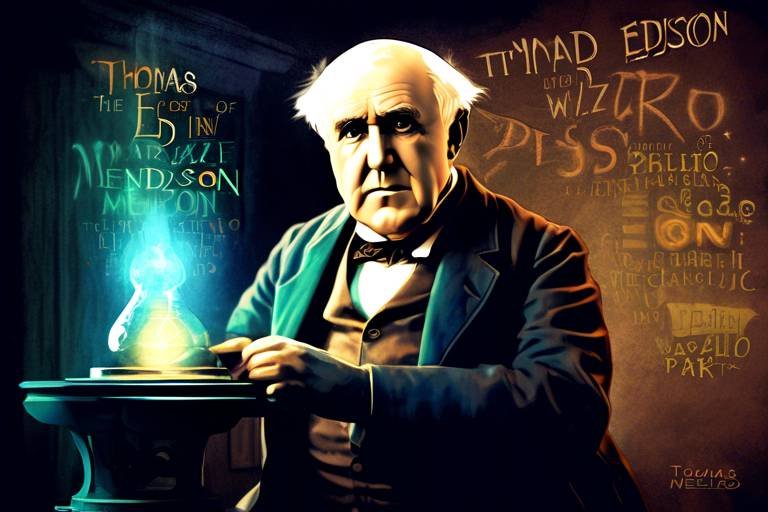Louis Pasteur: The Father of Microbiology
Louis Pasteur, often hailed as the Father of Microbiology, stands as a towering figure in the realm of scientific discovery. His groundbreaking contributions have reshaped our understanding of the microscopic world and paved the way for modern medicine as we know it today. Pasteur's legacy is not just a mere footnote in history but a living testament to the power of relentless curiosity and innovative thinking.

Early Life and Education
Louis Pasteur, often referred to as the Father of Microbiology, had a humble beginning that ultimately led to groundbreaking discoveries in the field of science. Born on December 27, 1822, in Dole, France, Pasteur grew up in a family of modest means. His early education at the Royal College of Besançon laid the foundation for his future academic pursuits.
Despite facing financial challenges, Pasteur's passion for learning and curiosity about the natural world drove him to excel in his studies. He later attended the prestigious École Normale Supérieure in Paris, where he focused on chemistry and physics. It was during this time that Pasteur's interest in microbiology began to take shape, setting him on a path towards scientific exploration and discovery.
One of the pivotal moments in Pasteur's early career was his appointment as the director of scientific studies at the École Normale Supérieure in 1848. This role not only provided him with the opportunity to further his research but also exposed him to the latest developments in the scientific community.
Throughout his formative years, Pasteur's mentors and colleagues played a significant role in shaping his scientific outlook. The guidance and support he received from prominent scientists such as Jean-Baptiste Dumas and Pierre Paul Émile Roux influenced his approach to research and experimentation.
By immersing himself in the world of academia and scientific inquiry, Pasteur honed his analytical skills and developed a keen understanding of the principles that govern the natural world. His early experiences laid the groundwork for his future contributions to microbiology and paved the way for his enduring legacy in the field of science.

Germ Theory of Disease
Louis Pasteur's groundbreaking contributions to microbiology revolutionized the field and laid the foundation for modern medicine. His work on germ theory, vaccines, and pasteurization has saved countless lives and continues to impact scientific research today.
Louis Pasteur's research on the was a game-changer in the field of microbiology. By demonstrating that microorganisms are responsible for causing infectious diseases, Pasteur challenged existing beliefs and paved the way for a new era in medicine. His experiments showed that these tiny germs could spread illness, leading to a shift in how diseases were understood and treated.
Through meticulous observation and experimentation, Pasteur provided concrete evidence to support his theory, showing that specific microbes were linked to specific diseases. This insight revolutionized healthcare practices, emphasizing the importance of sanitation, hygiene, and sterilization in preventing the spread of illnesses.
Imagine a world where diseases were thought to be caused by mysterious forces, and suddenly, Pasteur's work brought clarity like a beam of light in a dark room. His findings not only enhanced our understanding of disease transmission but also laid the groundwork for the development of effective treatments and preventive measures.
Q: What impact did Louis Pasteur's germ theory have on medicine?
A: Louis Pasteur's germ theory revolutionized medicine by establishing a scientific basis for understanding the causes of infectious diseases. It led to significant advancements in disease prevention, public health measures, and the development of vaccines.
Q: How did Pasteur's germ theory change healthcare practices?
A: Pasteur's germ theory prompted a shift towards more hygienic practices in healthcare settings. It emphasized the importance of sterilization, sanitation, and infection control measures to prevent the spread of diseases in hospitals and other medical facilities.
Q: What was the significance of Pasteur's experiments in proving the germ theory of disease?
A: Pasteur's experiments provided concrete evidence that microorganisms were responsible for causing diseases, challenging the prevailing theories of his time. By isolating and studying specific germs linked to specific illnesses, he demonstrated the validity of the germ theory and its implications for public health.

Vaccination Development
Louis Pasteur's work on marked a significant milestone in the history of medicine. His groundbreaking research and innovative approach to immunization have had a lasting impact on the control and prevention of infectious diseases. Pasteur's dedication to developing vaccines for deadly illnesses such as rabies and anthrax paved the way for modern vaccination strategies that have saved countless lives.

Pasteurization Process
When it comes to food safety and preservation, Louis Pasteur's invention of the pasteurization process stands as a monumental achievement. This groundbreaking technique involves heating liquids such as milk, wine, and other beverages to a specific temperature to kill harmful bacteria and pathogens without compromising the taste or nutritional value of the product.
The pasteurization process works by heating the liquid to a precise temperature, typically around 145-150°F (63-65°C), and holding it at that temperature for a set period, usually between 15-30 seconds. This method effectively eliminates disease-causing microbes, extending the shelf life of perishable goods and ensuring consumer safety.
One of the key benefits of pasteurization is its versatility and applicability across various industries. From dairy products to fruit juices and even cosmetics, this process has become a cornerstone of food and beverage production, guaranteeing quality and safety for consumers worldwide.
Moreover, pasteurization has played a crucial role in preventing foodborne illnesses and outbreaks, significantly reducing the risk of contamination and spoilage. By implementing this method, manufacturers can maintain product integrity and meet stringent regulatory standards, safeguarding public health and well-being.
Thanks to Louis Pasteur's innovative approach to food preservation, the pasteurization process has become an essential tool in ensuring the safety and quality of consumable goods. Its impact on modern food production practices is undeniable, reflecting Pasteur's enduring legacy in the realm of microbiology and public health.

Legacy in Medicine
Louis Pasteur's legacy in medicine is profound and far-reaching, shaping the practices of healthcare professionals and influencing modern medicine in significant ways. His groundbreaking discoveries in microbiology have paved the way for advancements in infectious disease control and treatment.
One of Pasteur's most enduring contributions to medicine is his work on vaccination development. By pioneering the development of vaccines for rabies, anthrax, and other diseases, he revolutionized the field of immunization and played a crucial role in controlling infectious diseases.
Furthermore, Pasteur's research on the germ theory of disease has had a lasting impact on public health measures and disease prevention strategies. His insights into how illnesses spread have guided healthcare practices and interventions, leading to improved outcomes for patients.
In addition to his work on vaccines, Pasteur's invention of the pasteurization process has had a significant influence on food safety standards. By introducing a method to prevent food spoilage and contamination, he transformed the way food is processed and preserved, ultimately safeguarding public health.
Overall, Louis Pasteur's legacy in medicine can be seen in the continued relevance of his discoveries and principles in the field of microbiology and healthcare. His innovative approaches to scientific inquiry and experimentation have inspired generations of researchers and continue to drive advancements in medical practice.

Scientific Methodology
When delving into the scientific methodology of Louis Pasteur, one cannot overlook his meticulous approach to experimentation and research. Pasteur's dedication to detail and precision set him apart as a pioneer in the field of microbiology. One of his most famous experiments, the swan-neck flask experiment, demonstrated the concept of spontaneous generation and the role of microorganisms in fermentation. By designing experiments that challenged prevailing beliefs and theories, Pasteur revolutionized the scientific community's understanding of microbiology.
Furthermore, Pasteur's emphasis on rigorous methodology and reproducibility laid the foundation for modern scientific practices. His commitment to thorough experimentation and observation ensured the validity and reliability of his findings. Through systematic testing and analysis, Pasteur was able to uncover essential principles of microbiology, such as the germ theory of disease, which transformed the landscape of medical science.
Moreover, Pasteur's scientific methodology extended beyond the laboratory, encompassing a holistic approach to problem-solving and innovation. His ability to combine theoretical knowledge with practical application led to groundbreaking discoveries that continue to shape the field of microbiology today. By integrating creativity with scientific rigor, Pasteur exemplified the essence of true scientific inquiry and exploration.
In essence, Louis Pasteur's scientific methodology serves as a beacon of inspiration for aspiring researchers and scientists. His unwavering dedication to empirical evidence, logical reasoning, and systematic investigation exemplifies the core principles of scientific inquiry. By following in Pasteur's footsteps and embracing his methodological approach, future generations can aspire to achieve new heights of discovery and innovation in the realm of microbiology.

Honors and Recognition
Throughout his lifetime and beyond, Louis Pasteur received numerous honors and accolades for his groundbreaking contributions to science and medicine. His work in microbiology revolutionized the field and continues to impact society today. Pasteur's dedication to advancing knowledge and improving public health earned him widespread recognition and admiration.
One of the most prestigious honors bestowed upon Louis Pasteur was the Nobel Prize in Physiology or Medicine in 1902. This esteemed award recognized his remarkable achievements in developing vaccines and his profound impact on the field of microbiology. The Nobel Prize solidified Pasteur's legacy as a pioneer in medical science and innovation.
In addition to the Nobel Prize, Pasteur was also honored with the Leeuwenhoek Medal by the Royal Netherlands Academy of Arts and Sciences in 1895. This award celebrated his significant contributions to microbiology and his groundbreaking discoveries in the field of infectious diseases. Pasteur's work laid the foundation for modern medical practices and revolutionized the understanding of microbial pathogens.
Furthermore, Louis Pasteur was elected as a Foreign Member of the Royal Society in 1882, a prestigious recognition of his exceptional scientific achievements and contributions to the field of microbiology. His election to this esteemed society highlighted his global impact and influence on scientific research and innovation.
Moreover, Pasteur's legacy was immortalized through the establishment of the Pasteur Institute in Paris in 1888. This renowned research center was founded in his honor and continues to be a leading institution in the study of infectious diseases and microbiology. The Pasteur Institute stands as a testament to Pasteur's enduring legacy and ongoing impact on scientific inquiry.
In recognition of his profound influence on the field of microbiology and medicine, numerous streets, schools, and scientific institutions have been named after Louis Pasteur around the world. These tributes serve as a constant reminder of his remarkable achievements and enduring legacy in the scientific community.

Contemporary Relevance
In today's world, Louis Pasteur's contributions to microbiology continue to shape the landscape of scientific research and healthcare practices. His groundbreaking work on germ theory, vaccines, and pasteurization remains highly relevant in the field of microbiology and beyond. The principles he established have become fundamental to understanding and combating infectious diseases, guiding modern medical interventions and public health strategies. Pasteur's emphasis on evidence-based practices and rigorous experimentation serves as a model for aspiring scientists and healthcare professionals, highlighting the importance of meticulous research in advancing our knowledge of microbiological processes and disease prevention.
Moreover, Pasteur's legacy extends beyond the realm of microbiology, influencing diverse fields such as food safety, biotechnology, and pharmaceutical development. The pasteurization process he devised revolutionized the preservation of perishable goods, ensuring the safety of consumable products and setting standards for quality control in various industries. His innovative approaches to vaccination have paved the way for the development of new immunization techniques and strategies, safeguarding populations against deadly diseases and contributing to global efforts in disease eradication.
In an era marked by rapid scientific advancements and emerging infectious threats, the relevance of Louis Pasteur's work remains paramount. His commitment to scientific integrity and relentless pursuit of knowledge serve as a beacon for researchers and healthcare professionals striving to address contemporary health challenges. By embracing Pasteur's principles of innovation, perseverance, and meticulous observation, the scientific community continues to build upon his foundational discoveries, driving progress in microbiology, medicine, and public health for the benefit of society as a whole.
Frequently Asked Questions
- What were Louis Pasteur's major contributions to microbiology?
Louis Pasteur made significant contributions to microbiology through his work on germ theory, vaccines, and pasteurization. His research revolutionized the understanding of infectious diseases and laid the foundation for modern medicine.
- How did Louis Pasteur's vaccination development impact healthcare?
Pasteur's development of vaccines for rabies, anthrax, and other diseases played a crucial role in controlling infectious diseases. His vaccination methods have saved countless lives and continue to be a cornerstone of disease prevention strategies.
- What is the significance of Pasteur's pasteurization process?
The pasteurization process invented by Louis Pasteur has been instrumental in preventing food spoilage and contamination. This technique revolutionized food safety standards and is still widely used in various industries to ensure product safety.
- How did Louis Pasteur's scientific methodology contribute to his success?
Pasteur's rigorous approach to scientific inquiry, exemplified by his famous swan-neck flask experiment, was key to his success in microbiological research. His attention to detail and commitment to experimentation set a high standard for scientific investigation.


















